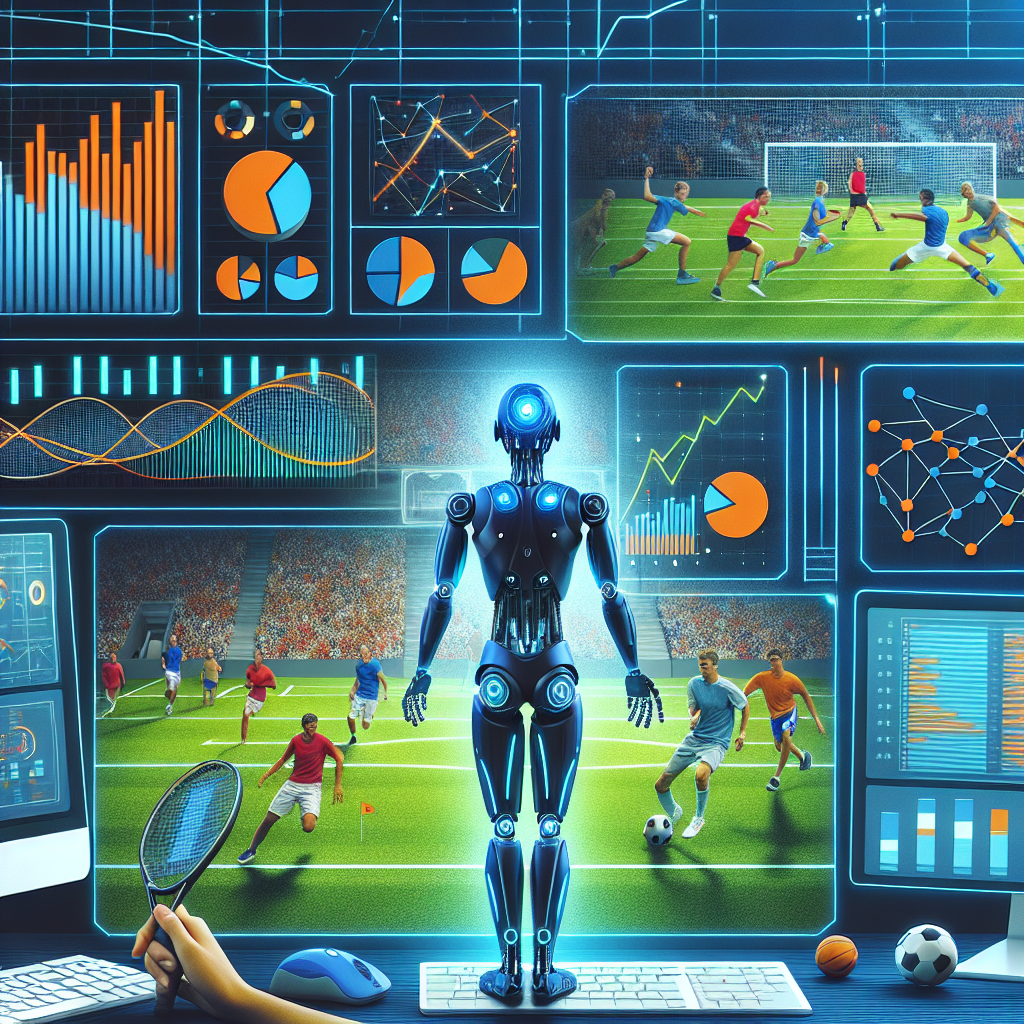The Future of AI in Sports Analytics
In recent years, the use of artificial intelligence (AI) in sports analytics has been rapidly growing, revolutionizing the way teams and athletes analyze and improve their performance. From predicting game outcomes to providing personalized training programs, AI is transforming the world of sports in ways we could never have imagined just a few years ago.
AI in sports analytics is not a new concept, but recent advancements in machine learning and data analysis have made it more powerful and accessible than ever before. With the ability to process massive amounts of data in real-time, AI is helping teams and athletes make faster, more informed decisions, ultimately leading to improved performance on the field, court, or track.
One of the most significant ways AI is being used in sports analytics is through predictive modeling. By analyzing past performance data, player statistics, and other relevant information, AI algorithms can predict the outcomes of games with a high degree of accuracy. This not only helps coaches and teams better prepare for upcoming matches but also allows fans to make more informed betting decisions.
In addition to predicting game outcomes, AI is also being used to optimize player performance. By tracking and analyzing biometric data, such as heart rate, movement patterns, and sleep patterns, AI can provide personalized training programs tailored to each athlete’s specific needs and goals. This level of customization can help athletes reach their full potential and prevent injuries by identifying potential risks before they occur.
Furthermore, AI is being used to enhance the fan experience by providing real-time statistics, insights, and highlights during games. By analyzing player movements, game footage, and other data sources, AI algorithms can generate instant replays, highlight reels, and other content that can be shared on social media and other platforms. This not only enhances the viewing experience for fans but also provides teams and leagues with valuable marketing opportunities.
The future of AI in sports analytics is bright, with new advancements and applications being developed every day. As technology continues to evolve, we can expect to see even more sophisticated AI algorithms that can analyze and interpret complex data sets, leading to even more accurate predictions and insights. Additionally, the integration of AI with other emerging technologies, such as virtual reality and augmented reality, will further enhance the way teams and athletes train and compete.
FAQs
Q: How is AI being used in sports analytics?
A: AI is being used in sports analytics to predict game outcomes, optimize player performance, enhance the fan experience, and provide real-time statistics and insights during games.
Q: How accurate are AI predictions in sports analytics?
A: AI predictions in sports analytics are highly accurate, with algorithms able to analyze vast amounts of data and make informed decisions based on past performance and other relevant factors.
Q: How does AI optimize player performance?
A: AI optimizes player performance by tracking and analyzing biometric data, such as heart rate, movement patterns, and sleep patterns, to provide personalized training programs tailored to each athlete’s specific needs and goals.
Q: How does AI enhance the fan experience?
A: AI enhances the fan experience by providing real-time statistics, insights, and highlights during games, generating instant replays, highlight reels, and other content that can be shared on social media and other platforms.
Q: What does the future hold for AI in sports analytics?
A: The future of AI in sports analytics is bright, with new advancements and applications being developed every day, leading to even more accurate predictions and insights, as well as the integration of AI with other emerging technologies to further enhance the way teams and athletes train and compete.

